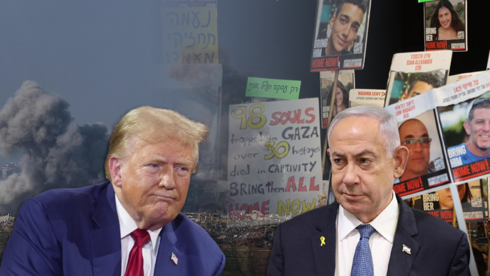Recent Developments in Gaza Conflict and Hostage Deal Negotiations
On Thursday evening, channels linked to Hamas announced a positive response to a new proposal for a hostage deal. In parallel, Israel’s political-security cabinet convened to deliberate over crucial decisions regarding the ongoing conflict in Gaza.
Hostage Deal Proposal Overview
Sources close to Hamas indicated that the organization would likely respond favorably to a proposed 60-day ceasefire. This plan includes the release of 10 live hostages and 18 deceased individuals. However, specific details regarding the conditions of Hamas’ acceptance remain undisclosed, and no official statement has been made yet.
Challenges Faced in Negotiations
In Israel, experts estimate that Hamas may create obstacles in the negotiations, as the organization is known to be particularly meticulous about the names of individuals involved in any agreements. This history suggests that negotiation could be protracted and complicated.
Israel’s Strategic Position
As preparations for potential “proximity talks” with Hamas are underway, Israeli officials remain skeptical. Significant pressure from the Trump administration on Qatar aims to facilitate productive dialogue with Hamas. The belief persists that, despite the complexities, these negotiations could yield results.
Political Dynamics and Leadership Perspectives
Israeli Prime Minister Benjamin Netanyahu’s commitment to reaching a deal is apparent. Cabinet officials have noted his determination to capitalize on what he perceives as a unique political opportunity—one that may not occur again within a generation. Netanyahu encourages efforts directed toward not only securing the release of hostages but also aiming for broader regional agreements.
Military Considerations and Options
The Israeli Defense Forces (IDF) have outlined several courses of action moving forward in Gaza. Options include negotiating a hostage deal, fully occupying the Gaza Strip, or maintaining a siege until Hamas surrenders. Each option carries significant implications, including military risks and humanitarian costs.
Future Prospects and Escalating Tensions
Despite the complexity of the situation, Netanyahu seems less threatened by political repercussions. Historical opposition from various coalition members to hostage deals may be countered by a majority backing in the cabinet. As regional dynamics shift, Netanyahu conveys readiness to pursue peace opportunities with Sunni nations, particularly Saudi Arabia, while ensuring that Hamas does not retain sovereign status in Gaza.
Conclusion: A Crossroads in the Gaza Conflict
Ultimately, resolving the Gaza situation is imperative for Israel, particularly in the context of retrieving hostages. Ensuring that Hamas does not assert control over Gaza remains a key objective as negotiations unfold. The evolving situation continues to demand careful monitoring as all parties prepare for potential outcomes.
